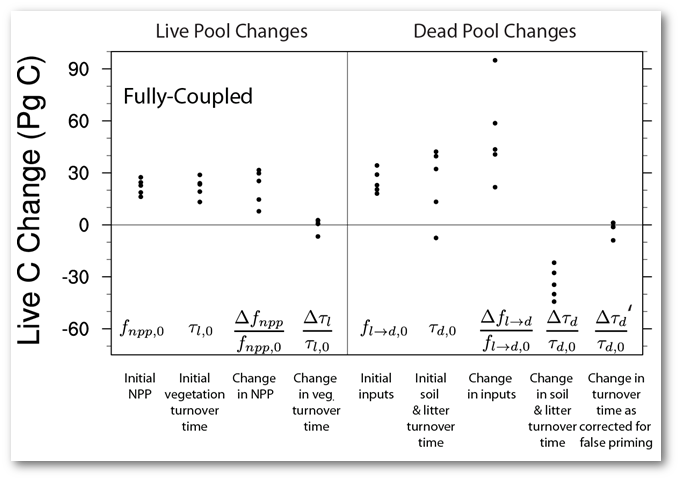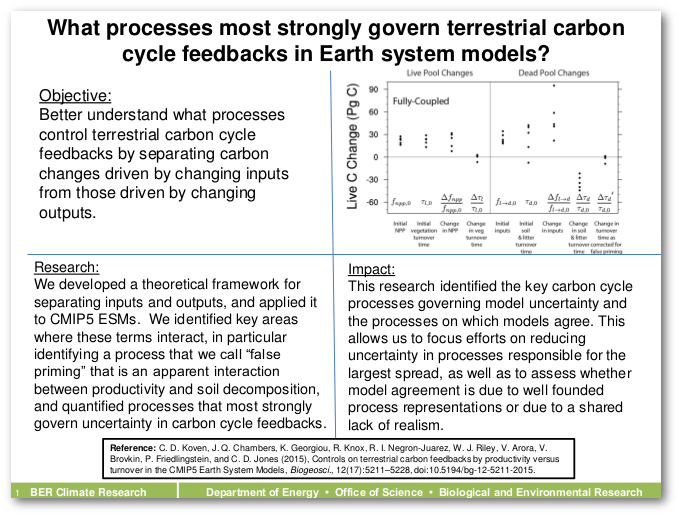Research Highlights
What processes most strongly govern terrestrial carbon cycle feedbacks in Earth system models?
September 7, 2015
Objective
Better understand what processes control terrestrial carbon cycle feedbacks by separating carbon changes driven by changing inputs from those driven by changing outputs.
Approach
We developed a theoretical framework for separating inputs and outputs, and applied it to CMIP5 ESMs. We identified key areas where these terms interact, in particular identifying a process that we call “false priming” that is an apparent interaction between productivity and soil decomposition, and quantified processes that most strongly govern uncertainty in carbon cycle feedbacks.
 |
Inter-model uncertainty in total integrated linearized equilibrium carbon responses resulting from each of the driving terms. The left four columns are the terms that drive live carbon changes (from left to right): initial productivity, initial turnover times, fractional change in productivity, and fractional change in turnover times. The right four columns are the corresponding controls on dead carbon (from left to right): initial productivity, initial turnover times, fractional change in productivity, and fractional change in turnover times. For each term, the relevant linearized equilibrium carbon stock changes were calculated using the individual model values for that term, and multi-model ensemble-mean values for all of the other terms, so the model spread reflects the uncertainty in the response to just that term. |
Results/Impacts
This research identified the key carbon cycle processes governing model uncertainty and the processes on which models agree. This allows us to focus efforts on reducing uncertainty in processes responsible for the largest spread, as well as to assess whether model agreement is due to well founded process representations or due to a shared lack of realism.
Koven, C. D., J. Q. Chambers, K. Georgiou, R. Knox, R. Negrón-Juárez, W. J. Riley, V. K. Arora, V. Brovkin, and P. Friedlingstein. September 7, 2015. “Controls on Terrestrial Carbon Feedbacks by Productivity vs. Turnover in the CMIP5 Earth System Models.” Biogeosci., 12(17):5211–5228. doi:10.5194/bg-12-5211-2015.
